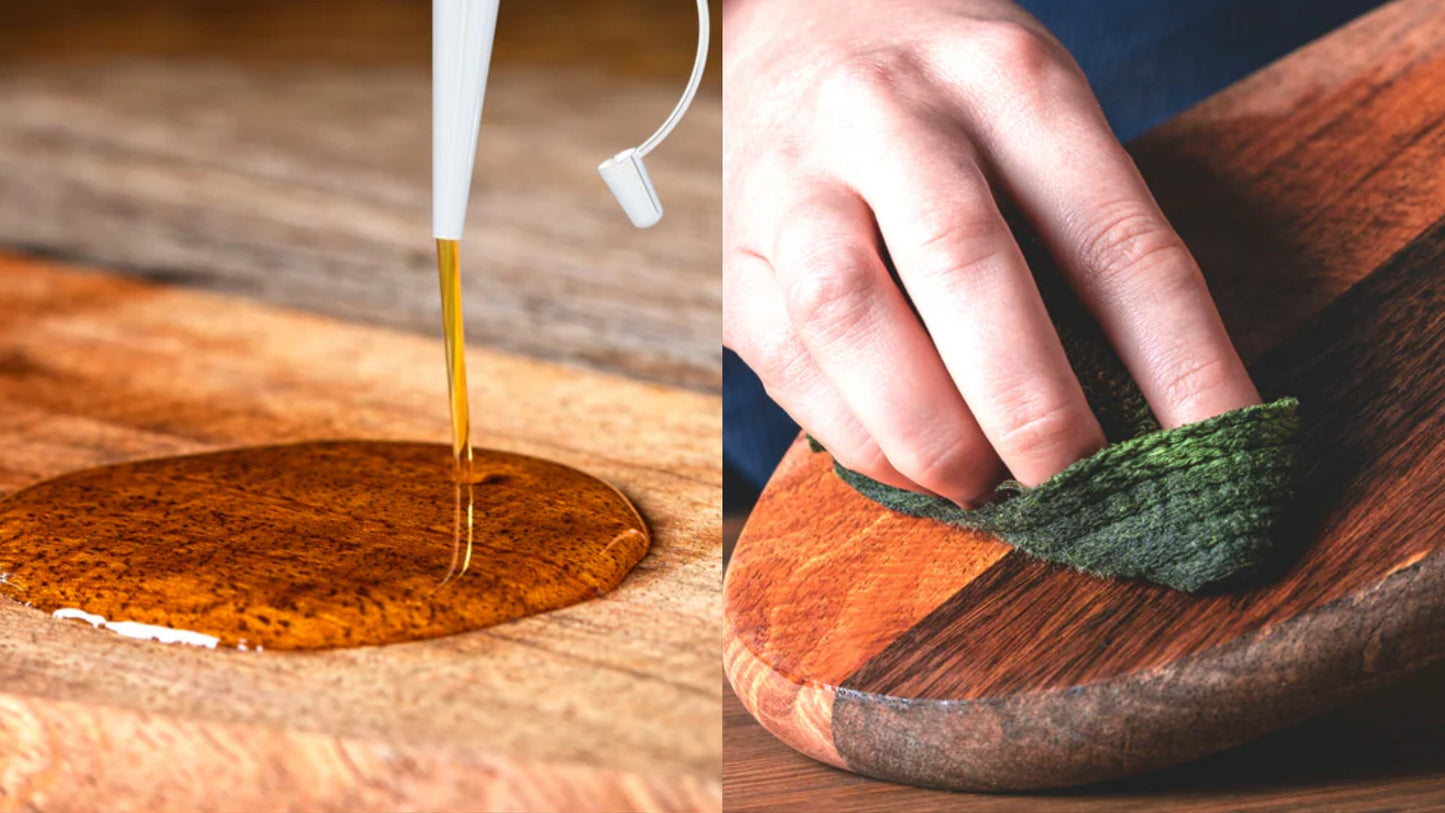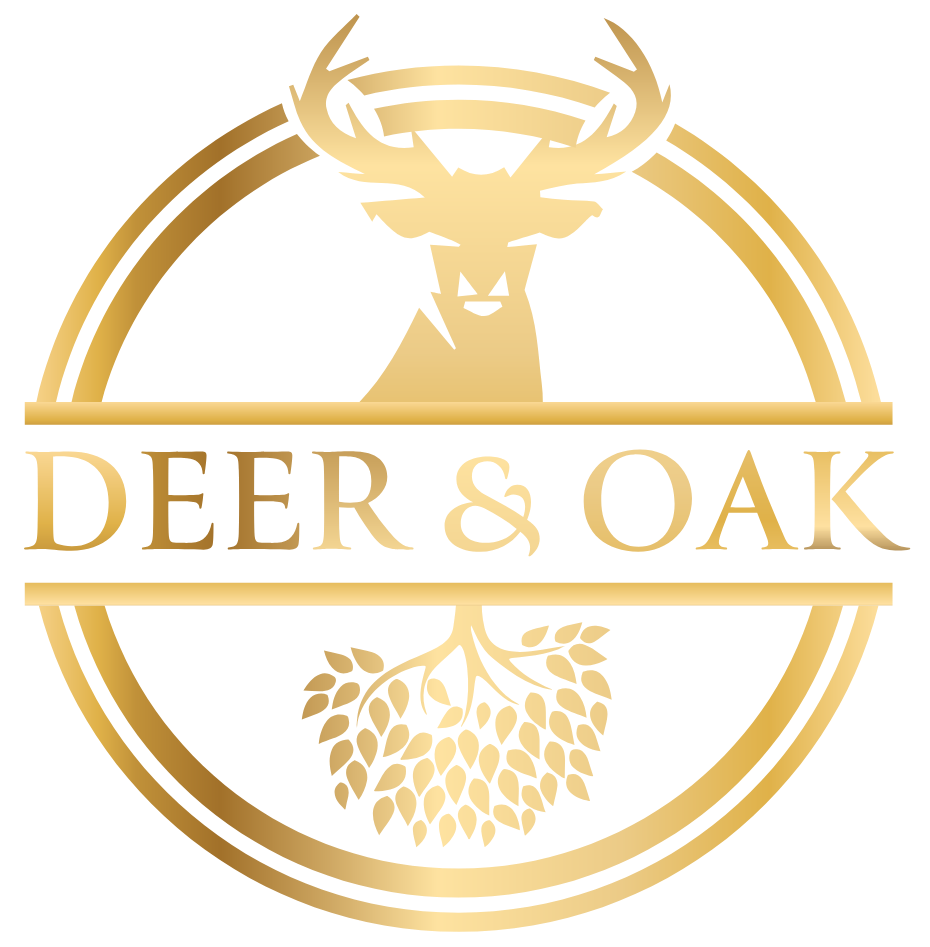
Maintaining your chopping board is crucial for both hygiene and durability. A well-maintained chopping board not only enhances your cooking experience but also ensures the longevity of the board. One of the most effective methods for maintaining your chopping board is oiling. In this article, we’ll explore why oiling your chopping board is essential, how to do it correctly, and which products are best suited for this purpose.
Importance of Oiling a Chopping Board
Oiling a chopping board is vital for several reasons. Firstly, it helps to prevent the board from drying out and cracking. Wooden and bamboo chopping boards, in particular, are prone to splitting if they lose their natural moisture. Oiling replenishes this moisture, ensuring that the board remains intact and functional.
Secondly, oiling creates a protective barrier on the surface of the chopping board. This barrier helps to repel water, reducing the likelihood of bacteria growth and making the board more hygienic. Additionally, a well-oiled board is easier to clean and less likely to retain food particles and stains.
Lastly, oiling enhances the appearance of the chopping board. It brings out the natural grain and colour of the wood or bamboo, giving it a rich and polished look. This not only makes the board more attractive but also makes it a beautiful addition to your kitchen.
Types of Chopping Boards That Need Oiling
Not all chopping boards require oiling, but those made from wood and bamboo certainly do. Wooden chopping boards, especially those made from hardwoods like maple, walnut, and oak, benefit greatly from regular oiling. These types of wood are durable and provide an excellent cutting surface, but they need to be maintained to prevent damage.
Bamboo chopping boards are also a popular choice due to their eco-friendliness and durability. However, like wooden boards, they can dry out and crack if not properly maintained. Oiling helps to keep bamboo boards in top condition by maintaining their moisture and preventing splits.
For example, the Deer & Oak Bamboo Chopping Board is an excellent choice for those looking for a durable and eco-friendly option. However, to keep it in perfect condition, regular oiling is necessary.
How to Choose the Right Oil
Choosing the right oil for your chopping board is crucial for effective maintenance. The best oils are those that are food-safe and can penetrate deeply into the wood or bamboo. Mineral oil is a popular choice because it is colourless, odourless, and does not go rancid. However, there are other excellent options such as beeswax, coconut oil, and specially formulated chopping board oils.
One highly recommended product is the Deer & Oak Premium Chopping Board Oil. This oil is designed specifically for maintaining chopping boards, ensuring they remain hydrated and protected.
Step-by-Step Guide to Oiling a Chopping Board
Oiling your chopping board is a straightforward process. Here’s a step-by-step guide to help you do it correctly:
- Preparation: Clean the chopping board thoroughly with warm water and mild soap. Rinse well and let it dry completely. It’s important that the board is clean and dry to allow the oil to penetrate effectively.
- Applying the Oil: Pour a small amount of oil onto the board. Use a clean, soft cloth or paper towel to spread the oil evenly over the surface, including the sides and edges. Apply the oil in the direction of the wood grain for better absorption.
- Let It Soak: Allow the oil to soak into the board for at least 20 minutes. For deeper penetration, you can leave it overnight. If the board absorbs the oil quickly, apply another coat.
- Wipe Off Excess Oil: After the oil has soaked in, use a clean cloth to wipe off any excess oil. The board should feel dry to the touch but look refreshed and polished.
- Repeat as Needed: Depending on the condition of your chopping board, you may need to repeat this process several times initially. Once the board is well-saturated, you can maintain it with regular oiling every few weeks.
Frequency of Oiling
The frequency of oiling depends on how often you use your chopping board and the type of wood or bamboo it’s made from. As a general rule, it’s a good idea to oil your board at least once a month, or better yet twice a month. However, if you use your board frequently, you may need to oil it more often.
Signs that indicate it’s time to oil your chopping board include a dry or dull appearance, rough texture, or when water no longer beads on the surface. Regular oiling will keep your board in top condition and extend its lifespan.
Common Mistakes to Avoid
When oiling your chopping board, it’s important to avoid common mistakes that can affect the effectiveness of the process. Here are a few to watch out for:
- Over-oiling or under-oiling: Applying too much oil can make the board sticky, while not using enough can leave it dry. Follow the instructions and apply an even coat.
- Using the wrong type of oil: Not all oils are suitable for chopping boards. Avoid vegetable oils, as they can go rancid. Stick to food-safe oils like mineral oil or specially formulated chopping board oils.
- Not cleaning the board properly before oiling: Make sure the board is clean and dry before applying oil. Residual food particles or moisture can prevent the oil from penetrating effectively.
Benefits of Using Bamboo Chopping Boards
Bamboo chopping boards have gained popularity due to their eco-friendly properties and durability. Bamboo is a sustainable resource, as it grows quickly and does not require replanting after harvesting. This makes bamboo boards an environmentally friendly choice.
In addition to being sustainable, bamboo chopping boards are also highly durable and resistant to knife marks. They are harder than many types of wood, making them less prone to deep cuts and grooves. However, like wooden boards, bamboo boards need regular oiling to maintain their quality.
The Deer & Oak Bamboo Chopping Board is an excellent example of a high-quality bamboo board that requires regular maintenance to stay in top condition.
Extending the Life of Your Chopping Board
Oiling is just one part of maintaining your chopping board. Here are some additional tips to help extend its life:
- Proper cleaning: After each use, clean your chopping board with warm water and mild soap. Avoid soaking it in water, as this can cause the board to warp or crack.
- Avoiding harsh detergents: Strong detergents and dishwashers can damage the surface of your chopping board. Stick to mild soap and hand washing.
- Storing correctly: Store your chopping board in a dry place, away from direct sunlight and heat sources. Standing it upright allows for proper air circulation and prevents moisture build-up.
- Regular sanding: Over time, your chopping board may develop scratches or knife marks. Lightly sanding the surface with fine-grit sandpaper can help smooth out these imperfections before re-oiling.
Eco-friendly and Health Benefits of Chopping Board Oils
Oiling your chopping board not only extends its life but also has eco-friendly and health benefits. By maintaining your board, you reduce the need for frequent replacements, which in turn reduces waste and the demand for new resources. Additionally, a well-oiled board is less likely to harbour bacteria, making it a safer and more hygienic surface for food preparation.
Using natural and food-safe oils further ensures that your chopping board remains free from harmful chemicals. This is especially important if you use your board for cutting fruits, vegetables, and other food items that come into direct contact with the surface.
Comparing Different Types of Oils
When it comes to choosing the right oil for your chopping board, several options are available. Here’s a comparison of the most popular types:
- Mineral oil: This is a common choice due to its colourless, odourless, and non-toxic properties. It’s also widely available and affordable.
- Beeswax: Often combined with mineral oil, beeswax provides a thicker, more durable coating. It’s ideal for sealing the surface and providing a water-resistant barrier.
- Coconut oil: This natural oil is also food-safe and has antimicrobial properties. However, it can go rancid if not stored properly, so it’s important to choose a refined, fractionated version.
- Specialty oils: Products like the Deer & Oak Premium Chopping Board Oil are specifically formulated for maintaining chopping boards. They offer a blend of oils and waxes designed to provide optimal protection and hydration.
Customer Reviews and Testimonials
Many users have found that regular oiling significantly improves the longevity and appearance of their chopping boards. Customers who use the Deer & Oak Bamboo Chopping Board and Premium Chopping Board Oil report excellent results, with their boards remaining smooth, crack-free, and visually appealing. Positive reviews highlight the ease of application and the noticeable difference in the board’s condition after oiling.
Frequently Asked Questions
Here are some common questions about oiling chopping boards, along with their answers:
- How often should I oil my chopping board? It depends on usage, but generally, once a month is recommended.
- Can I use olive oil to oil my chopping board? It’s best to avoid vegetable oils like olive oil, as they can go rancid. Stick to food-safe oils like mineral oil or specialty chopping board oils.
- What if my chopping board still feels dry after oiling? If the board absorbs the oil quickly, apply additional coats until it feels well-saturated.
- Is it safe to use my chopping board immediately after oiling? Yes, as long as you wipe off any excess oil and the board feels dry to the touch.
- Can I use the same oil for wooden and bamboo boards? Yes, food-safe oils like mineral oil and specialty chopping board oils are suitable for both types.
Conclusion
Regular oiling is essential for maintaining the quality and longevity of your chopping board. By choosing the right oil and following proper oiling techniques, you can ensure that your board remains a reliable and hygienic kitchen tool. Whether you have a wooden or bamboo chopping board, investing in products like the Deer & Oak Bamboo Chopping Board and Premium Chopping Board Oil will help keep it in top condition for years to come.
FAQs
-
How often should I oil my chopping board?
- Ideally, you should oil your chopping board once a month. However, if you use it frequently, you may need to oil it more often.
-
Can I use olive oil to oil my chopping board?
- It’s best to avoid vegetable oils like olive oil as they can go rancid. Use food-safe oils like mineral oil or specialty chopping board oils instead.
-
What if my chopping board still feels dry after oiling?
- If the board absorbs the oil quickly, apply additional coats until it feels well-saturated. This indicates that the wood or bamboo is properly hydrated.
-
Is it safe to use my chopping board immediately after oiling?
- Yes, as long as you wipe off any excess oil and the board feels dry to the touch, it’s safe to use.
-
Can I use the same oil for wooden and bamboo boards?
- Yes, food-safe oils like mineral oil and specialty chopping board oils are suitable for both wooden and bamboo boards.
Deer & Oak Bamboo Chopping Board and Deer & Oak Chopping Board Oil are available on Amazon UK or deerandoak.co.uk
